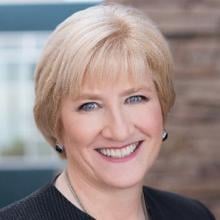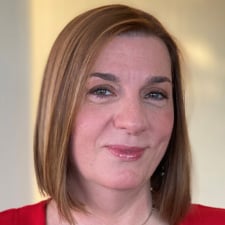As mergers and acquisitions continue to dominate the U.S. health care landscape, physician private practices are now the minority. That is especially the case in oncology care, where large health systems and academic medical centers hold sway.
Formed in February 2024, ONCare Alliance is a merger bringing together the National Cancer Care Alliance (NCCA) and Quality Cancer Care Alliance (QCCA). The entity aims to address private practices’ needs and work jointly on large-scale initiative while ensuring patients have choices for cancer care. The alliance is composed of 32 practices with more than 800 physicians and other health professionals serving 3.1 million patients.
National Cancer Care Alliance is a member of the AMA Health System Program, which provides enterprise solutions to equip leadership, physicians and care teams with resources to help drive the future of medicine.
“Independent practices have always been the foundation for care for underserved populations,”
“By working as an alliance, we can enhance the ability of practices to better serve their communities, competing successfully with corporate delivery systems while maintaining both patient and physician satisfaction,” said oncologist Barbara L. McAneny, MD. She is co-chair and chief officer of advocacy and government affairs for the ONCare Alliance and former founder and board chair of NCCA.
Each organization brought its own strengths and expertise to the table. Specifically, QCCA has historically specialized in research, clinical trials and data for independent practices, while NCCA focused on addressing social drivers of health, physician and administrator training, and bringing value-based care programs into private oncology practices.
Maintaining independence
“Being independent sometimes means that you need allies,” said Dr. McAneny, who is also a former president of the AMA. “You don’t need owners, you don’t need bosses, but you do need friends and allies.”
ONCare Alliance gives independent oncology practices just that: A network designed to tackle the biggest challenges facing independent oncology practices. That includes help to:
- Manage rising operating costs.
- Streamline data.
- Bring research and clinical trials to patients.
- Address social drivers of health.
- Improve patient care and outcomes.
“We can create ideas, innovations and resources that we can bring into all of the practices to improve their quality, reduce their costs and improve their revenue streams so they can stay independent,” said Sibel Blau, MD, co-chair and president and CEO of ONCare Alliance. She formerly served as president and CEO of QCCA.
“For any practice, there are so many things to think about: building a research program, doing value-based care programs, training the next generation of physicians and practice administrators, and so on,” said Dr. McAneny.
But ONCare Alliance has experts focused on each of these areas and more.
“We can share all of our expertise and collaborate with all of the practices in our network across the country, which will make each one of the practices stronger,” Dr. McAneny said.
It takes astute clinical judgment as well as a commitment to collaboration and solving challenging problems to succeed in independent settings that are often fluid, and the AMA offers the resources and support physicians need to both start and sustain success in private practice.
Improving patient care
ONCare Alliance is also using the combined expertise and capabilities of the member practices to effectively improve patient care. The goal is to use the data from its 3.1 million patients to improve treatments and help patients make informed, data-driven decisions about their cancer treatment.
For example, Dr. McAneny noted that the alliance could use outcomes data from women who have been treated for early breast cancer to help other women weigh their treatment options.
“We can look at what the course looks like for the average woman who has breast cancer, the woman who is asking not only what my chances [of survival] are, but also what will my life look like if I choose one regimen over another,” said Dr. McAneny.
Physicians in the alliance are also combining forces to bring more advanced cancer treatments and clinical trials into independent community practices. This can give patients access to treatments typically only available at academic health systems.
“We, in community oncology, have always been passionate about doing everything we can for our patients and increasing access to clinical trials,” said Dr. Blau. “We’re establishing programs and protocols that would be very hard to develop on your own within your practice. But together, we can bring in the resources to set up these programs.”
Physicians in the network, for example, are creating protocols to offer cancer treatments such as bispecific antibodies and theranostics in community oncology practices. Following these protocols, independent oncologists can successfully launch these programs within their own practices, giving patients access to these novel treatments. And these efforts are continuing to grow, with more private practices able to offer clinical trials.
“We have over 16 practices that can do phase 1 clinical trials—and nine of those can do first-in-human trials,” said Dr. Blau.
Addressing social drivers of health
Clearly, investing in research and clinical trials is crucial to advancing cancer care. But community physicians are also aware that social drivers of health can make it difficult for these advancements to help individual patients who face barriers to treatment.
“When people cannot pay their bills, they can’t even think about clinical trials, let alone getting their treatment,” said Dr. Blau.
ONCare Alliance is working to address that kind of barrier.
“Everybody in health care says, ‘we’re here for the patient,’ so we’re putting our money where our mouth is,” said Dr. McAneny. “We have a foundation, the National Cancer Safety Net Foundation, to help patients pay the rent, buy food, fix their roof or truck, get child care or whatever else they may need to be able to then access treatment.”
If any practice within ONCare Alliance has a patient who needs support, the physician or any clinic staff member can refer the patient to the foundation of that practice. The National Cancer Safety Net Foundation will give grants to the local foundations who will then work with the patient to provide the support they need. ONCare Alliance is helping practices build a local branch of the Foundation, as the practices are the people who know which patients need help.
“This is a way for all the practices in the organization to come together and address these issues—and we can do that more effectively as a large group,” said Dr. McAneny. “This helps the practice foundations with fundraising and gives corporate entities an easy way to make sure their donations are going to patients in need.”
Managing practice costs
Just as safety nets help patients access care, helping physician practices achieve financial stability allows them to deliver the best possible care. This is particularly crucial in oncology, where it can cost about $500,000 just to build and operate an infusion room.
“There are things that one can do as a big consortium that you can’t do alone as an independent practice,” said Dr. McAneny.
For example, ONCare Alliance has consolidated purchasing to give all member practices discounts on medications, professional society memberships, research and more. The alliance also helps practices find new revenue streams.
“When you put us all together with a data warehouse that has more than 3 million patients in it, you can do valuable research and people will pay for that information,” said Dr. McAneny. “We want that to be a revenue stream for practices.”
To further support private practices—and ensure they stay independent—ONCare Alliance launched Oncology College. This training series helps young and midcareer independent physicians and administrators learn how to manage a practice and keep it sustainably independent. Topics covered include succession planning, health law, reimbursements and creating clinically integrated networks.
“Independent practices are a critical part of the solution to the health care crisis,” said Dr. Blau. “So, we stress how they can remain independent, understand what it means to be independent and why it’s so important. We help them be good business owners to run efficient, yet high-quality, patient-centered practices.”
The AMA provides the resources and support that physicians need to succeed in private practice. These include the “AMA STEPS Forward Private Practice Playbook,” which is based on qualitative research into physician interest in private practice and the management needs for operating a private practice, and the “AMA Thriving in Practice” podcast, with tips from experienced private practice physicians on navigating pain points and other issues.





